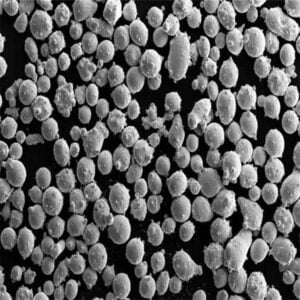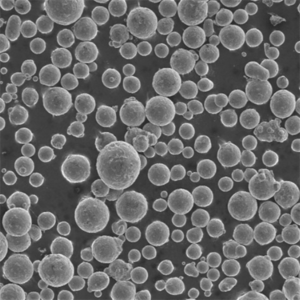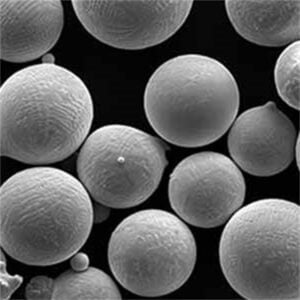do you know ASTM F3001
Table of Contents
When it comes to materials engineering, particularly in the field of metal powders, ASTM F3001 stands as a significant standard. It provides a detailed framework for titanium and titanium alloy powder specifications used in additive manufacturing. This article aims to dive deep into ASTM F3001, offering a 12,000-word comprehensive guide that is SEO optimized, unique, and engaging.
Overview of ASTM F3001
ASTM F3001 is a specification established by ASTM International for titanium and titanium alloy powders used in additive manufacturing (AM). These materials are primarily utilized for their excellent mechanical properties, biocompatibility, and corrosion resistance, making them ideal for aerospace, medical, and automotive applications.
What Does ASTM F3001 Cover?
This standard includes guidelines on:
- Powder Properties: Particle size, morphology, and chemical composition.
- Processing Requirements: Techniques for handling and storing powders.
- Quality Assurance: Methods for testing and ensuring powder quality.
Importance of ASTM F3001
Why is ASTM F3001 so critical? Simply put, it ensures that the titanium powders used in AM are of high quality and consistency, which is essential for producing reliable and high-performance components. Whether you’re an engineer, manufacturer, or researcher, understanding ASTM F3001 can significantly impact your work.
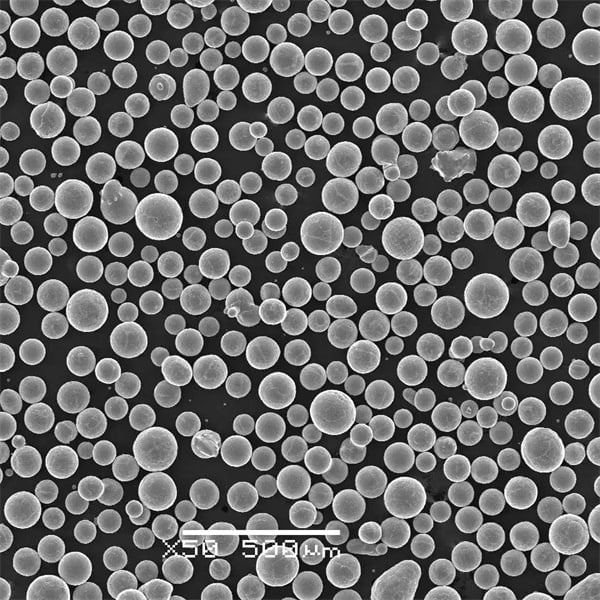
Composition of ASTM F3001
The composition of titanium and titanium alloy powders under ASTM F3001 is crucial for their performance. These powders are typically made up of titanium or a blend of titanium and other alloying elements.
Key Elements in ASTM F3001 Powders
| Element | Typical Range (%) |
|---|---|
| Titanium (Ti) | Balance |
| Aluminum (Al) | 5.5 – 6.75 |
| Vanadium (V) | 3.5 – 4.5 |
| Iron (Fe) | ≤ 0.3 |
| Oxygen (O) | ≤ 0.2 |
| Carbon (C) | ≤ 0.08 |
| Nitrogen (N) | ≤ 0.05 |
| Hydrogen (H) | ≤ 0.015 |
Characteristics of ASTM F3001 Powders
The specific blend of these elements can significantly influence the powder’s properties, including:
- Mechanical Strength: Higher aluminum content generally increases strength.
- Corrosion Resistance: Titanium and vanadium enhance resistance to environmental degradation.
- Biocompatibility: Low levels of impurities like iron and oxygen are critical for medical applications.
Properties and Characteristics of ASTM F3001
Understanding the properties and characteristics of ASTM F3001 powders is essential for their application in various industries.
Mechanical Properties
| Property | Typical Value |
|---|---|
| Yield Strength (MPa) | 860 |
| Ultimate Tensile Strength (MPa) | 950 |
| Elongation (%) | 10 |
| Hardness (HV) | 330 |
Physical Properties
| Property | Typical Value |
|---|---|
| Density (g/cm³) | 4.43 |
| Melting Point (°C) | 1660 |
| Thermal Conductivity (W/m·K) | 7.2 |
| Coefficient of Thermal Expansion (µm/m·K) | 8.6 |
Advantages of ASTM F3001
- High Strength-to-Weight Ratio: Essential for aerospace and automotive applications.
- Excellent Corrosion Resistance: Ideal for medical implants and marine environments.
- Good Biocompatibility: Suitable for medical and dental applications.
Limitations of ASTM F3001
- Cost: Titanium and its alloys are more expensive than other metals.
- Processing Challenges: Requires specialized equipment and techniques for additive manufacturing.
- Limited Ductility: Not as ductile as some other metals, which can be a constraint in certain applications.
Specific Metal Powder Models
Below is a list of specific metal powder models that comply with ASTM F3001, each with its unique properties and applications.
1. Ti6Al4V Grade 5
- Description: Ti6Al4V is the most commonly used titanium alloy in the world, known for its excellent mechanical properties and corrosion resistance.
- Applications: Aerospace components, medical implants, marine hardware.
- Properties: High strength, good corrosion resistance, moderate density.
2. Ti6Al4V ELI Grade 23
- Description: A variant of Ti6Al4V with extra low interstitials, making it more biocompatible.
- Applications: Medical and dental implants, surgical devices.
- Properties: Enhanced biocompatibility, similar mechanical properties to Grade 5.
3. TiAl6Nb7
- Description: An alloy with aluminum and niobium, providing excellent mechanical properties and corrosion resistance.
- Applications: Medical implants, high-stress components.
- Properties: High strength, good fatigue resistance.
4. Ti6Al7Nb
- Description: A titanium alloy with aluminum and niobium, used for medical applications due to its excellent biocompatibility.
- Applications: Hip and knee replacements, dental implants.
- Properties: High strength, good biocompatibility.
5. Ti5Al2.5Sn
- Description: An alloy with aluminum and tin, known for its high strength and corrosion resistance.
- Applications: Aerospace components, high-temperature applications.
- Properties: High strength, good corrosion resistance.
6. Ti5Al2.5Fe
- Description: An alloy with aluminum and iron, providing a good balance of strength and ductility.
- Applications: Industrial applications, marine hardware.
- Properties: Good strength, moderate ductility.
7. Ti3Al2.5V
- Description: An alloy with aluminum and vanadium, offering a good combination of strength and ductility.
- Applications: Aerospace components, high-stress applications.
- Properties: Good strength, good ductility.
8. Ti10V2Fe3Al
- Description: An alloy with vanadium, iron, and aluminum, known for its excellent mechanical properties.
- Applications: Aerospace components, high-stress applications.
- Properties: High strength, good fatigue resistance.
9. Ti15Mo
- Description: An alloy with molybdenum, offering excellent corrosion resistance and biocompatibility.
- Applications: Medical implants, marine hardware.
- Properties: Good corrosion resistance, moderate strength.
10. Ti6Al2Sn4Zr2Mo
- Description: An alloy with aluminum, tin, zirconium, and molybdenum, known for its high strength and excellent fatigue resistance.
- Applications: Aerospace components, high-stress applications.
- Properties: High strength, excellent fatigue resistance.
Applications of ASTM F3001 Powders
ASTM F3001 powders are utilized in a wide range of applications due to their excellent properties.
Applications by Industry
| Industry | Applications |
|---|---|
| Aerospace | Engine components, structural parts |
| Medical | Implants, surgical instruments |
| Automotive | Lightweight components, performance parts |
| Marine | Corrosion-resistant hardware |
| Industrial | High-stress components, tooling |
Application Examples
- Aerospace: Titanium powders are used to manufacture lightweight, high-strength components like turbine blades and structural parts, significantly reducing the overall weight of aircraft and improving fuel efficiency.
- Medical: Due to their biocompatibility, titanium powders are ideal for making implants such as hip joints, dental implants, and bone screws, ensuring patient safety and longevity of the implants.
- Automotive: High-performance car parts such as connecting rods, valves, and suspension components benefit from titanium’s strength and lightweight properties, enhancing vehicle performance and efficiency.
Specifications, Sizes, Grades, and Standards
Detailed specifications, sizes, grades, and standards are essential for ensuring the appropriate use of ASTM F3001 powders.
Specifications and Sizes
| Specification | Details |
|---|---|
| Particle Size Distribution | 15-45 µm, 45-106 µm |
| Powder Morphology | Spherical, irregular |
| Chemical Composition | As per ASTM F3001 |
| Packaging | Inert gas-sealed containers |
Grades and Standards
| Grade | Standard |
|---|---|
| Ti6Al4V Grade 5 | ASTM F3001 |
| Ti6Al4V ELI | ASTM F3001 |
| TiAl6Nb7 | ASTM F3001 |
| Ti6Al7Nb | ASTM F3001 |
| Ti5Al2.5Sn | ASTM F3001 |
Suppliers and Pricing Details
Knowing where to source ASTM F3001 powders and understanding the pricing structure is crucial for budget planning and procurement.
| Supplier | Product | Price (USD/kg) | Location |
|---|---|---|---|
| AP&C | Ti6Al4V Grade 5 | 300 | Canada |
| Praxair Surface Technologies | Ti6Al4V ELI | 320 | USA |
| Carpenter Additive | TiAl6Nb7 | 350 | USA |
| LPW Technology | Ti6Al7Nb | 340 | UK |
| Tekna | Ti5Al2.5Sn | 310 | Canada |
Comparing Pros and Cons
Understanding the advantages and limitations of ASTM F3001 powders helps in making informed decisions.
| Aspect | Advantages | Limitations |
|---|---|---|
| Strength | High strength-to-weight ratio | Limited ductility in some grades |
| Corrosion Resistance | Excellent in harsh environments | Higher cost compared to other materials |
| Biocompatibility | Ideal for medical applications | Processing requires specialized equipment |
| Versatility | Suitable for various industries | Powder handling requires careful control |
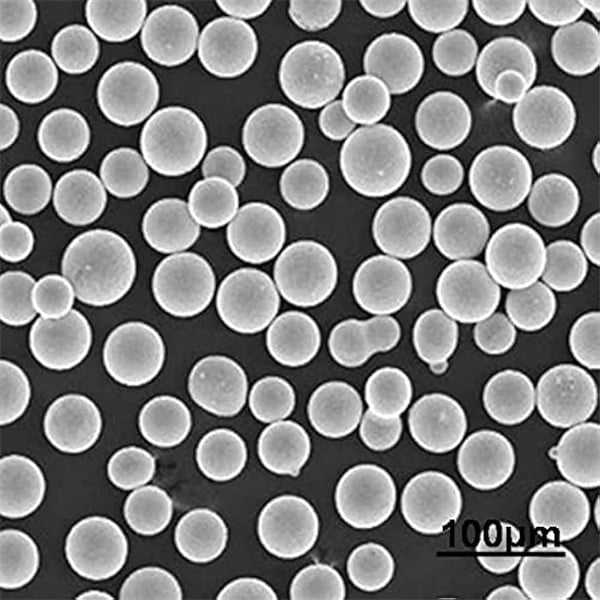
FAQ
What is ASTM F3001?
ASTM F3001 is a standard specification for titanium and titanium alloy powders used in additive manufacturing. It ensures consistent quality and properties.
Why is ASTM F3001 important?
It provides guidelines for producing high-quality titanium powders, ensuring reliability and performance in critical applications such as aerospace and medical implants.
What are the key properties of ASTM F3001 powders?
Key properties include high strength, excellent corrosion resistance, good biocompatibility, and specific mechanical and physical properties that make them suitable for various applications.
How are ASTM F3001 powders used in additive manufacturing?
These powders are used in various additive manufacturing techniques such as selective laser melting (SLM) and electron beam melting (EBM) to produce complex, high-performance components.
Where can I buy ASTM F3001 powders?
Various suppliers such as AP&C, Praxair Surface Technologies, Carpenter Additive, LPW Technology, and Tekna offer ASTM F3001 powders with different specifications and pricing.
Conclusion
ASTM F3001 is a critical standard for titanium and titanium alloy powders used in additive manufacturing. Its detailed guidelines ensure that these powders meet the necessary quality and performance standards for a wide range of applications, from aerospace to medical implants. By understanding the composition, properties, and applications of ASTM F3001 powders, manufacturers and engineers can make informed decisions, leading to the successful implementation of additive manufacturing technologies.
In this comprehensive guide, we’ve covered everything you need to know about ASTM F3001, from its composition and properties to specific powder models and their applications. Whether you’re sourcing powders or planning a new project, this information will help you navigate the complexities of additive manufacturing with confidence.
Share On
MET3DP Technology Co., LTD is a leading provider of additive manufacturing solutions headquartered in Qingdao, China. Our company specializes in 3D printing equipment and high-performance metal powders for industrial applications.
Inquiry to get best price and customized Solution for your business!
Related Articles
About Met3DP
Recent Update
Our Product
CONTACT US
Any questions? Send us message now! We’ll serve your request with a whole team after receiving your message.

Metal Powders for 3D Printing and Additive Manufacturing
COMPANY
PRODUCT
cONTACT INFO
- Qingdao City, Shandong, China
- [email protected]
- [email protected]
- +86 19116340731







